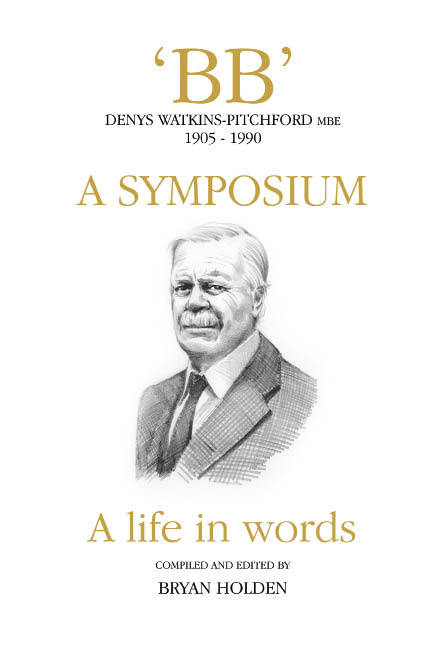Denys Watkins-Pitchford (1905-1990) illustrated dozens of books under his double-barrel and wrote at least 60 of his own under the two initials ‘BB’.
Denys Watkins-Pitchford (1905-1990) illustrated dozens of books under his double-barrel and wrote at least 60 of his own under the two initials ‘BB’. This Symposium is a demonstration of how his writing has touched many, varied lives.
The son of a vicar, he put his own faith in ‘nature’. Subsidised by his own writing, he followed what is called here ‘the manly pusuits’ — fishing, wildfowling — though why a man exalted to near ecstasy by the beauty of a skein of geese rising from marshes in the dawn should feel it necessary to shoot, to ‘bag’ its leader, is a mystery. But he also collected the eggs of Purple Emperor butterflies and, when the time came, released these creatures to the wild. He fed by hand fledgling bullfinches fallen from the nest.
Peter Wheat loved BB without even having met him. Wheat, brought up in post-industrial Staffordshire, a poisoned place — ‘extinct mining excavations full of lifeless coal-water, dead cats and dogs (some in sacks)’ — he came across BB’s Letters from Compton Deverell,
read it (twice) and found myself safe in his net with no desire whatsoever to get out again. I let his eyes guide my own.
How did BB manage this? Perhaps by his close observations, his ‘life in words’. Christian McEwen, unhappy at boarding school, finds refuge in BB’s The Little Grey Men, in their adventures and in BB’s enchanted sense of scale. The Grey Men were shorter than buttercups, which were supended above them; they moved ‘under an azure sky studded with golden nails.’
BB took odd jobs, taught art at Rugby while the regular master was serving in the army. He was one of that generation, too young for the first world war, too old for the second, suspended between two epochs with an inbuilt nostalgia; a man after his time. He peers at nature, almost interrogates it, aware that in his England it is diminishing before his eyes.
He compiles compendiums: A Shooting Man’s Bedside Book, writes children’s books, ‘for children of all ages’, trying to make his heroes see what is around them. His ‘scraperboards’ are reminiscent of Bewick. Many are included here; and one, of a boy climbing a fir tree, seen from below, is a vertiginous masterpiece; it makes you dizzy to look at it.
He maintains his faith in nature but — perhaps having the best of both worlds? — writes of his clergyman father in A Child Alone (1978):
His faith was strong. He had, unlike me, no doubts about life after death. So maybe I shall be proved wrong again. He was a wise old bird.





Comments